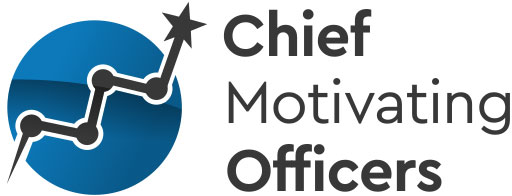Think about the last week of your “work life.” How many emails did you read and respond to, to then read the response back? How many emails did you “screen” but didn’t respond to? How many meetings did you attend to jot down notes for further actions to take, then to report back at a later time? How many decisions were you asked to make for the company you work for? What did you read throughout the week related to your work but not directly (i.e., news articles, magazine articles, journal articles, Google headlines)? How many times did you go onto social media and get even more information than you probably wanted?
Ok enough with the questions. The quick headline with all these questions is leading to the subject matter of information overload. I have experienced information overload more than once in my life, and every time it is overwhelming, debilitating, and downright obnoxious to get through it all. Has this happened to you? (ok that was the last question I promise).
While in my Doctorate of Business Administration program, an article made its way into my reading list that peaked my interest. The title of the article is “The Concept of Information Overload: A Review of Literature from Organization Science, Accounting, Marketing, MIS, and Related Disciplines” published in the Information Society Journal in 2004. This article analyzed contributions from various disciplines over a thirty-year time span. I was intrigued from the very title itself to dissect the review of information overload from a multi-disciplinary perspective. Here is what I learned, and please note this is a very abbreviated version of this robust research article… this is a blog after all.
How does one define “information overload”? 
In plain english, information overload is the result of receiving too much information. With regards to research, the focus has been on how an individual performs in making decisions based on the amount of information they are exposed to. What research has shown across the disciplines is the correlation between decision making and the amount of information. This may make sense to you; however, what the article points out as well is how the more information an individual consumes, decision making declines rapidly and leads to that newer information not being integrated into the decision-making process. Imagine how frustrating that is for the individual as well. The picture seen here was highlighted in the article to illustrate visually this “inverted u-shape” of information correlated with decision making, which supports the definition of information overload.
When does information overload happen?
Timing seems to be everything when it comes to information overload. One of the main points from this article of when information overload happens is when the supply of information exceeds the capacity of the individual to consume it. If you are being asked to make a decision, consider the time of day, how much information you have already consumed up to that point, and whether you believe you have all the “right” information to make a good decision. Seems like common sense, but if you are pressured to make a decision, you will base your decision on whatever information you can recall, versus the “right” information.
What “causes” information overload?
The following five causes that influence information overload were described by the authors (Epplerm & Mengis, 2004, page 330).
- The information itself causes information overload – Quantity, frequency, intensity and quality of information were listed as causes for information overload.
- The person receiving the information and the person communicating the information. The authors described “personal traits” when it comes to the individual, specifically they write about “personal skills, the level of experience, and the motivation of a person” impact information capacity
- The tasks or processes needed to be completed by an individual, team or organization. Have you ever experienced managing one too many tasks? How about tasks that happen infrequently and requires your use of a long procedure? These factors contribute to information overload – routine versus non-routine, easy versus complex tasks, interruptions to the tasks, and managing multiple projects
- The organizational design (work structures). Imagine an organization structured lean versus dense with layers and layers from top to bottom, or an organization redesign from location specific to a centralized support structure. A strong organizational design can reduce information overload by better standards, procedures, rules and dedicated centers for managing the information.
- The information technology being used and how it is being used. Between the “internet, intranet, and extranets” we are inundated with information technology, not to mention email. In some cases, I have worked with more than a dozen information systems at any given time, all looking to “enable” my performance, when in reality it takes me twice as long to do absorb the vast amount of information I get from the collective whole of the systems.
What are the effects of information overload?
For this article, I just want to name the effects of information overload uncovered by the research; my way of minimizing information overload, if you will.
Limited information – I can’t find something, I am not sure what to find, and I can’t seem to reach the target audience. From search strategies to search directions, one effect of information overload is a clear understand of what information
Arbitrary information – In many cases, we get so much information we begin to filter, sort, and in some cases just plain ignore information being communicated to us. We begin to view information as arbitrary information based on whether it overlaps or is inconsistent with other information we have, and/or we are simply selective in what information we consume.
Suboptimal decisions – This is the point of information isn’t, to make some decisions. The effects of information overload are pretty straightforward in this regarding – our ability to make accurate or quality decisions is lessened greatly, creating ineffective and inefficient work.
Stress – This is how the article started, I probably even stressed you out with all those questions, even a little. Information overload stresses people out, may even demotivate and lead to inadvertent bad habits such as a “greater tolerance of error.”
Are there countermeasures to information overload?
The good news is the research definitely proposes counter measures to combat the possible effects of information overload. The full list is great, from general suggestions to specific software tools. To highlight the findings, I selected countermeasures described in the research into the form of a checklist here.
| Is this the cause of your information overload? | Try these countermeasures |
| The information itself (too much, too often, to intense, poor quality) | Make the information
|
| The individual (receiver of information) | Can you provide employees with:
|
| The organizational design | Structurally speaking, evaluate the opportunity to
|
| Information Technology | Try
|
| Task and process parameters | Try
|
For your Reading Pleasure: This article was written based on the work of…
Epplerm M. J. & Mengis, J. (2004). The Concept of Information Overload: A Review of Literature from Organization Science, Accounting, Marketing, MIS, and Related Disciplines, The Information Society, 20:5, 325-344, DOI: 10.1080/0197224049050797

